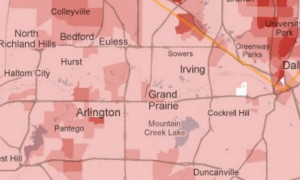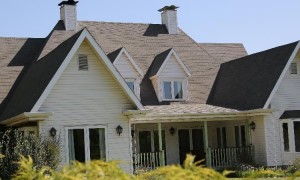Famous Philadelphian Benjamin Franklin is credited with saying, “In this world nothing can be said to be certain, except for death and taxes.” It seems Philadelphia has taken the last part of his quote to heart, charging taxes on a number of activities and on property. While the Philadelphia tax rate is higher-than-average in some areas, Philadelphians pay fewer taxes in some cases. If you’re thinking of moving to the city, getting a job there, or simply spending a day or two shopping, it’s important to understand what taxes you may or may not have to pay.
Income Taxes
Income taxes in Philadelphia can be divided into two major categories. If you work for an employer located in the city and receive a W-2 at the end of the year, the employer, will withhold a wage tax from your earnings. If you are self-employed or work on a contract basis for a company and receive a 1099, the company doesn’t have to withhold your taxes. Instead, you’re treated as a business and need to apply for a Commercial Activity License, which is free, and you’ll be responsible for a net profits tax and a business income and receipts tax. The Philadelphia tax rate for the wage tax is currently 3.92 percent for residents while the net profit tax is 3.924 percent for residents.
Sales Tax
If you’re doing any shopping in Philly, you may have to pay a sales tax. The commonwealth charges a rate of 6 percent, which goes to the state, plus an additional 2 percent, which goes to the city. While an 8 percent tax rate can seem high, it doesn’t apply to everything. Certain food items, such as groceries and candy, are exempt from the tax, as are necessities, such as clothing, medications, and textbooks.
Certain items are taxed at a different rate than the standard sales tax. For example, if you buy beer, wine, or other types of alcohol, you’ll pay an extra 10 percent of the purchase price. Tickets to movies or theater include a 5 percent amusement tax, while booking a hotel room means paying an extra 8.5 percent in taxes.
Real Estate Tax
Philadelphia residents who own their homes usually need to pay a property or real estate tax, which is 1.34 percent. If you’re thinking of buying a home in Philly, it’s worthwhile to find out if the property qualifies for a real estate tax abatement or exemption. Tax abatement is often offered on new construction, while tax exemptions are provided to people who have lived in their homes for an extended period of time or who have limited income. The Homestead Exemption allows you to reduce the taxable value of your property by up to $30,000, if you live in the home.
Philly does have one of the highest tax burdens in the country. But there’s a fair amount of give and take when it comes to taxes. For some people, paying a higher wage tax or higher real estate tax is worth it for the opportunity to live in Philadelphia.
Image Source: Flickr/Rob Shenk
[cf]skyword_tracking_tag[/cf]







[…] post Figuring out the Philadelphia Tax Rate appeared first on Coldwell Banker Blue […]
[…] ← Figuring out the Philadelphia Tax Rate […]
[…] Figuring out the Philadelphia Tax Rate […]
[…] Figuring out the Philadelphia Tax Rate […]
[…] post Figuring out the Philadelphia Tax Rate appeared first on Coldwell Banker Blue […]
[…] Philly does have one of the highest tax burdens in the country. But there’s a fair amount of give and take when it comes to taxes. For some people, paying a higher …read more […]